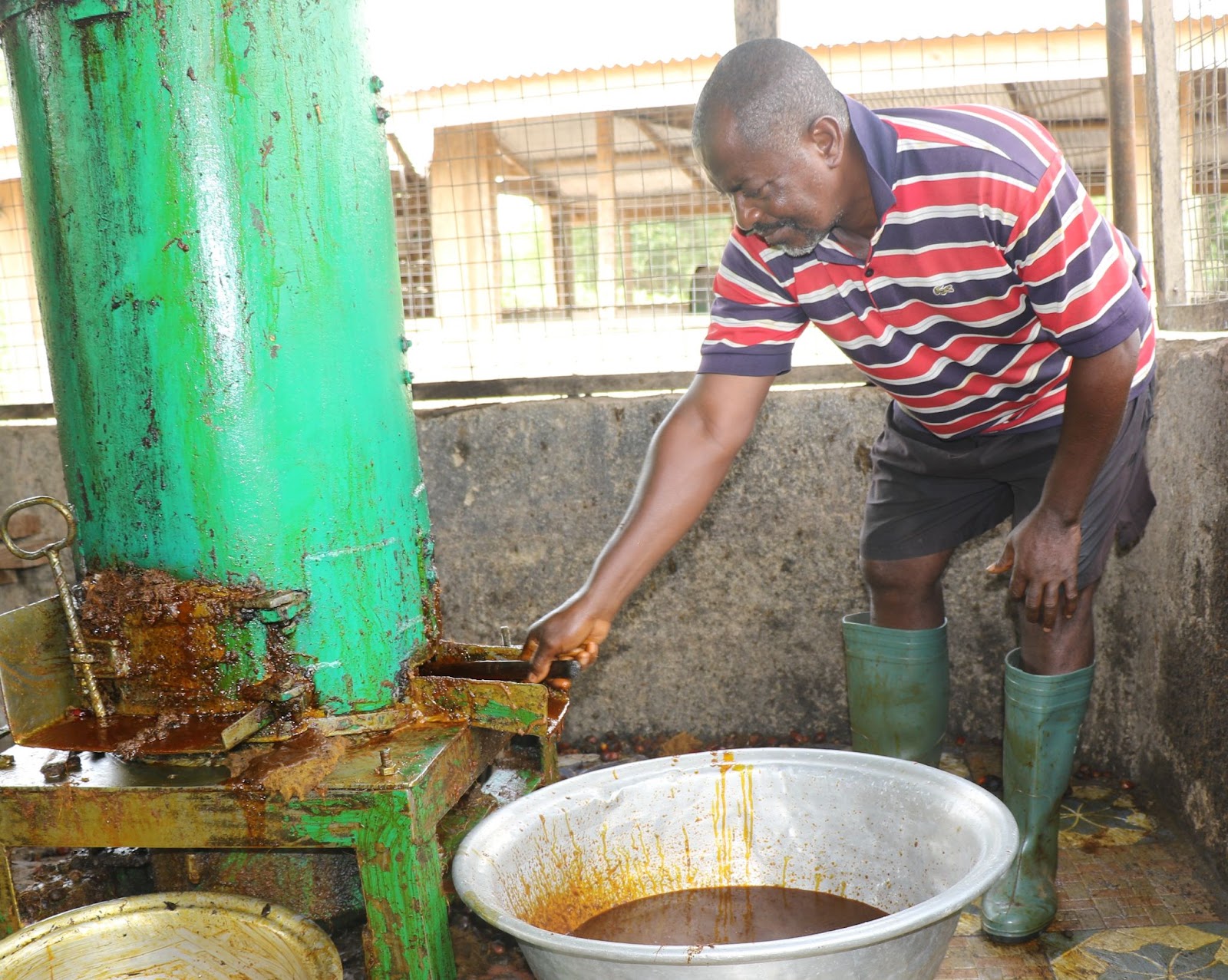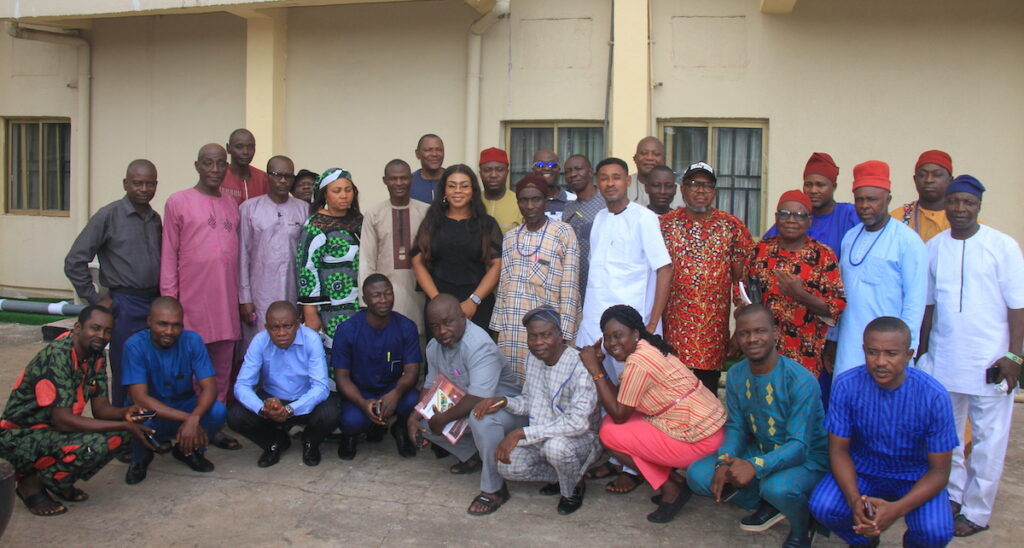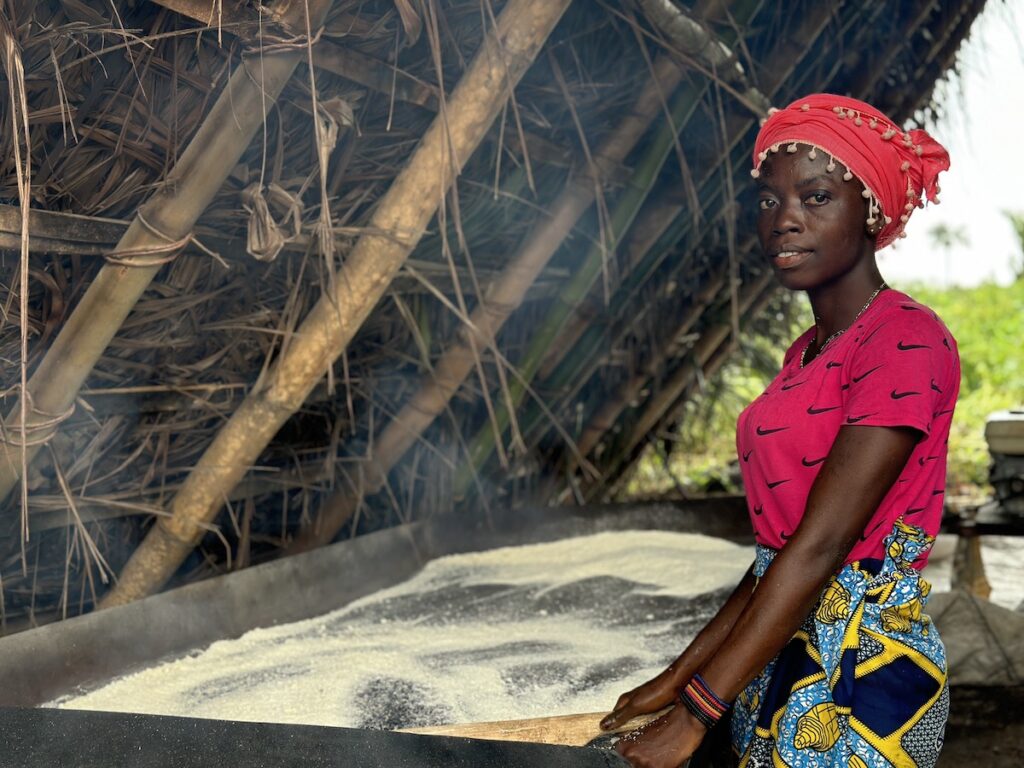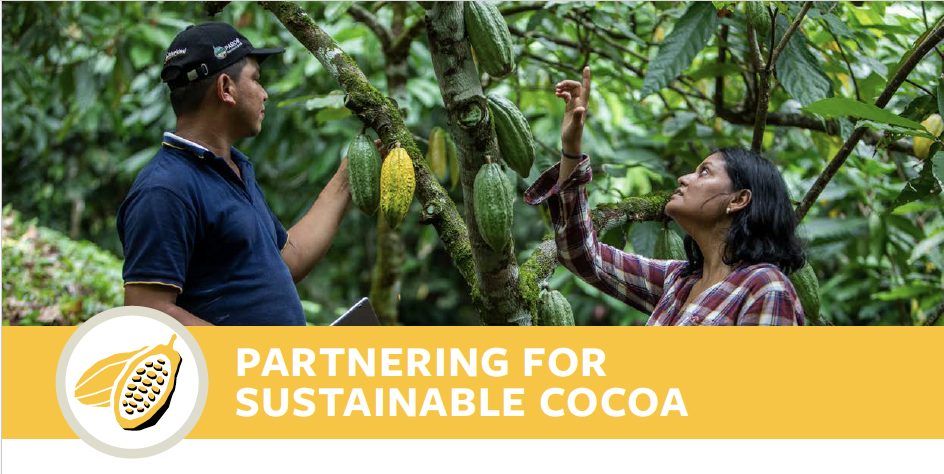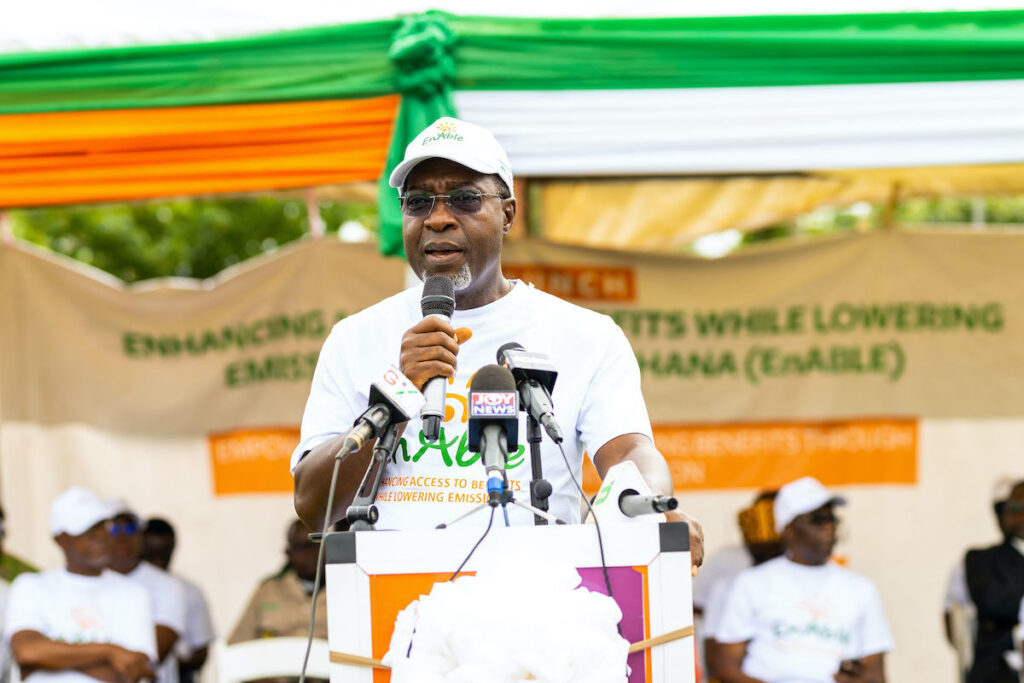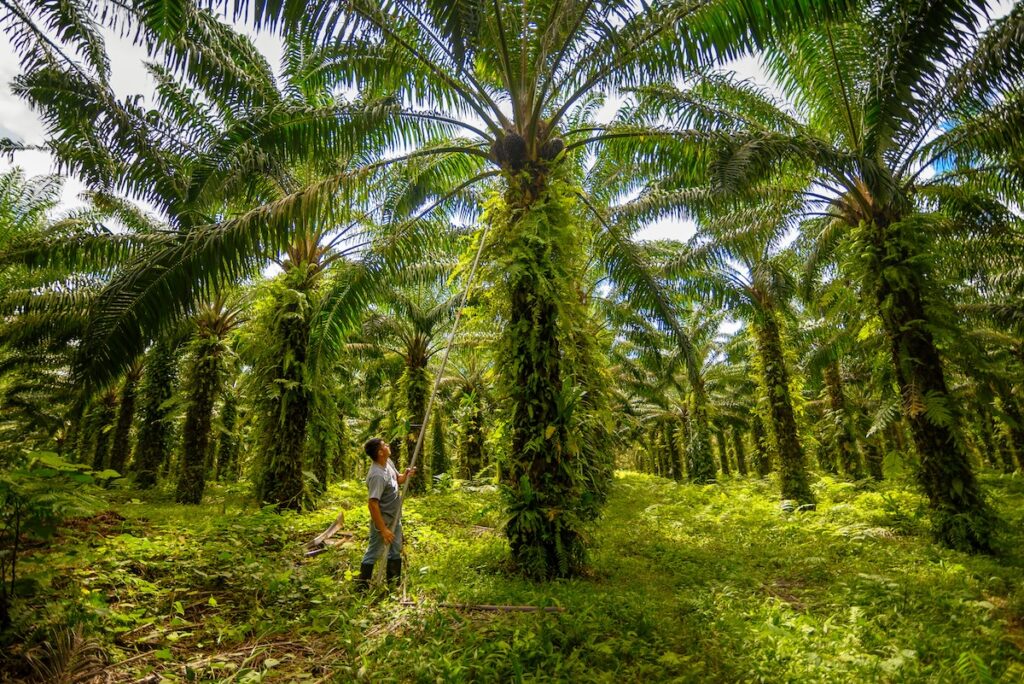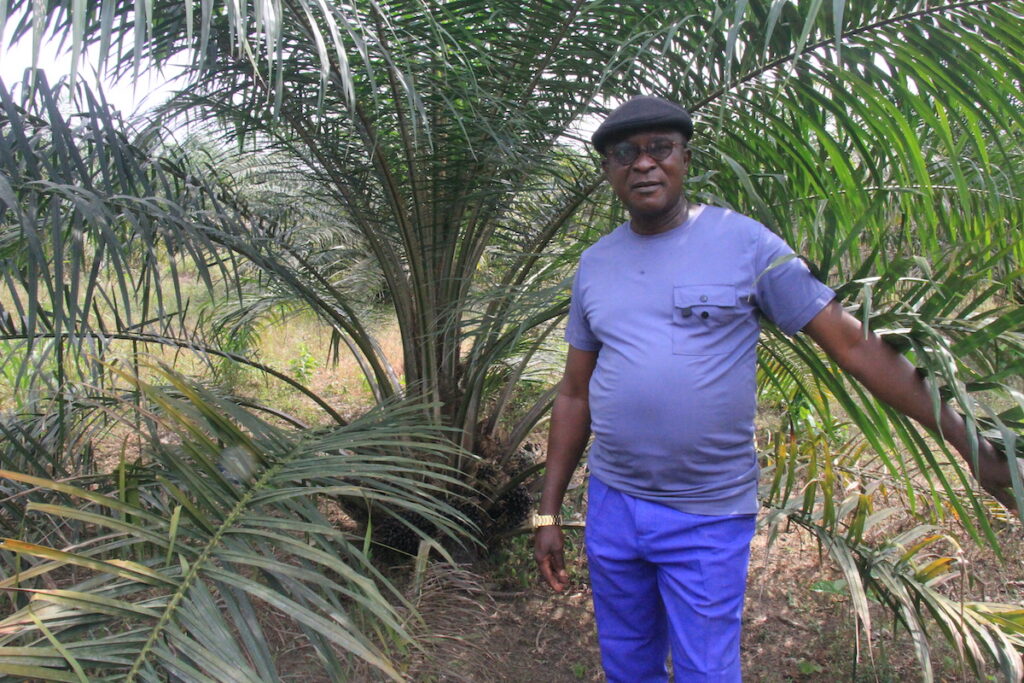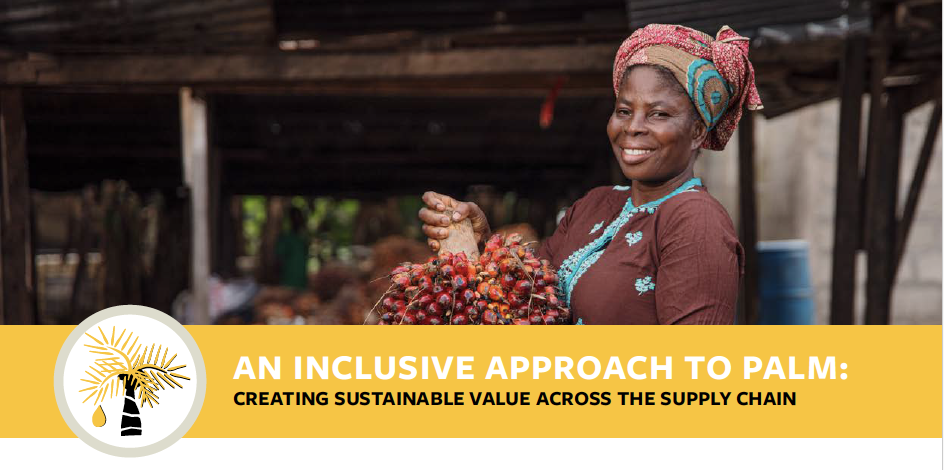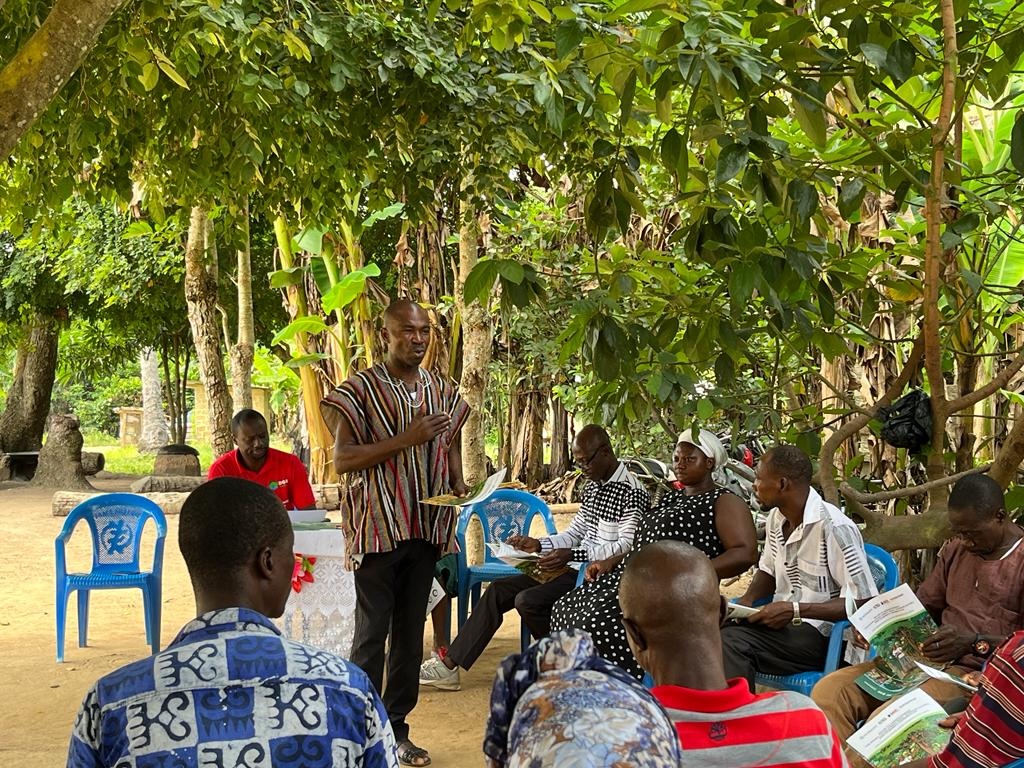Paul Toku-Dum’s popularity in Foso Odumase in Ghana’s Central Region is not in doubt. This is not just where he resides but also operates his artisanal oil palm milling business that draws visitors to the community in search of quality edible oil.
He owns a 10-acre oil palm field cultivated in 2006, interspersed with food crops such as maize and cassava to meet the needs of his family. With the prospect of harvesting enough fresh fruit bunches from his farm and adding value to them through processing, Paul secured a bank loan to establish the oil palm mills in 2012.
Improving yields through the adoption of best management practices
In 2019, he together with other farmers in his area received Solidaridad’s support to improve oil palm production through training in best management practices – BMP.
The initiative forms part of the implementation of the second phase of the Sustainable West Africa Palm Oil Programme (SWAPP), funded by the Embassy of the Kingdom of the Netherlands in Accra and the Swiss government through its State Secretariat for Economic Affairs (SECO).
Paul says he learned a lot of new things from the training that covered sound agronomic practices such as fertilizer application, weed control, pruning as well as line and pegging. Without any hesitation, he started applying the knowledge.
“Because I do not have the strength and energy to do all of these on my own, I count on the services of Greenage, a rural service center, for harvesting support while labourers provide pruning, weeding and fertilizer application services.”
“Even though this comes at a heavy financial cost, the outcome has been especially thrilling as I see heavy yields afterwards,” he says.
Before the application of the knowledge in best management practices, Paul could barely harvest 100 fresh fruit bunches each month.
He says, “within a year of applying BMP, there was a tremendous improvement.”
I now harvest an average of 300 bunches every three weeks from the same field in the major season and about half this capacity in the minor season.
Paul Toku-Dum, Oil Palm Farmer
With the improved yield, Paul earns more income, part of which he uses to buy additional 200 bunches from other farms to feed his mill every three weeks.
Good milling practices enhance the extraction rate of palm oil
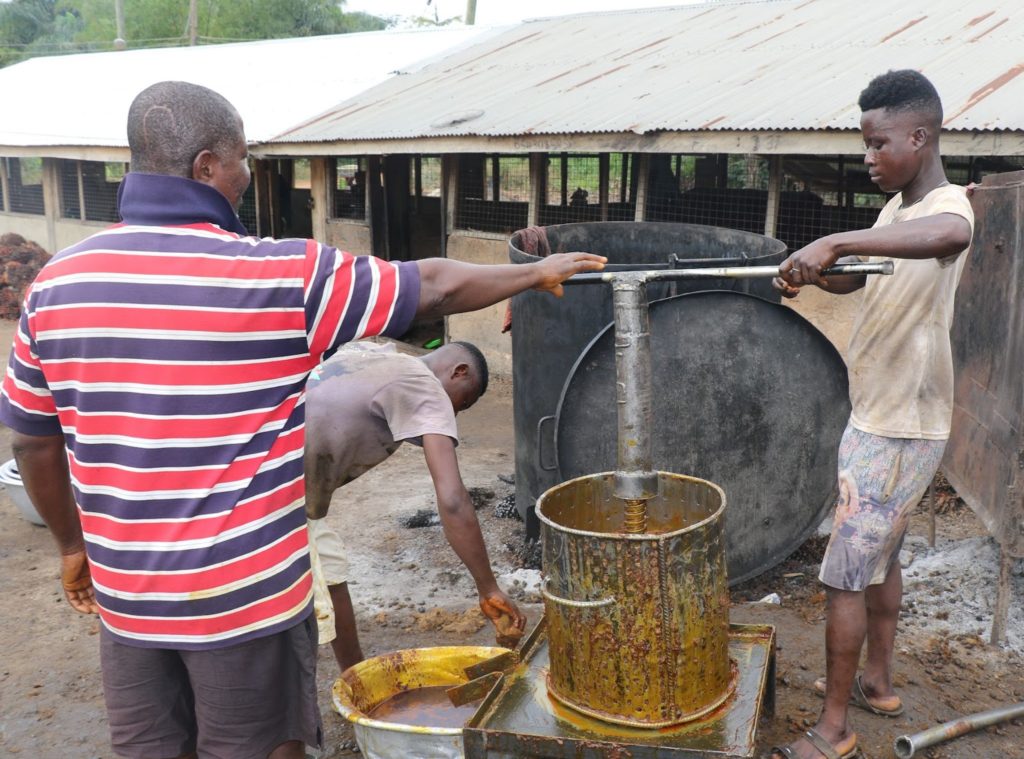
Solidaridad’s relationship with him under SWAPP also covered capacity building in good milling practices to increase the palm oil extraction rate. Motivated, Paul made additional investment in a digester and screw press to optimize palm oil extraction. The investment is now paying off.
“Until about mid-2019, I could only extract up to 250 litres of palm oil from 300 fresh fruit bunches. Now, however, this has increased by some four-fold to more than 1,100 litres. And there is a great potential to generate more, with some additional investment in equipment”, he says.
With the increased income, Paul, in 2021, started constructing a new structure to house his mills.
To improve the quality of his edible oil and competitiveness, Paul also enrolled in the progressive licensing regime under the auspices of the Food and Drugs Authority in 2020.
“When Solidaridad brought the Food and Drugs Authority and officers from the local government to visit my production site, they showed me areas I needed to make additional improvement in order to increase the quality of my produce.”
“For instance, they advised me to process the fresh fruit bunches within five days of harvesting to reduce free fatty acids and pay more attention to hygiene and waste handling at the mills,” he says.
Paul has been responding positively to the food safety regulatory services the authority provided as part of the implementation of SWAPP with Solidaridad’s collaboration.
“After making progressive changes, I can see a marked improvement in the quality of my palm oil. This has sharply increased demand for the produce. My target is to export the edible oil once I receive the license or certification from the Food and Drugs Authority,” he says.
But this is work in progress as Paul sees other areas that need improvement to fully comply with the guidance from the authority. He is also hopeful of additional future investments in mill equipment to raise the standard of operation at his site.
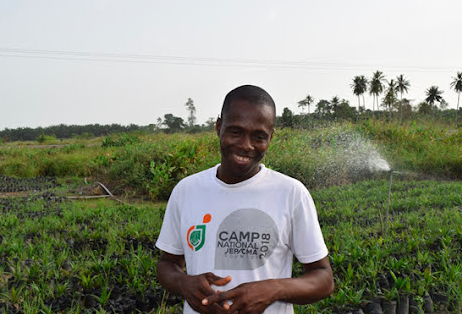
Building a resilient palm oil sector in Côte d’Ivoire
Solidaridad has been supporting enterprises in Côte d’Ivoire to tap into opportunities along the supply chain, including farm management services, agricultural inputs, commercial nurseries and digitization services, among others.
Supplementing income through Village Savings and Loan Associations
Paul’s business – Toku-Dum Ventures – has also benefited from the financial inclusion component of SWAPP that has supported the creation of Village Savings and Loan Associations (VSLA) in various oil palm producing communities.
This approach allows women and men clustered around the supply chain to contribute a small amount each week toward a revolving fund. Contributors subsequently are able to access credit from the fund at a competitive repayment schedule.
Paul says the VSLA group in his community, involving 20 members, has served as a supplementary source of funds for his business.
“The VSLA has been the reason I was able to roof the new building that now houses my mills. So far, I have thrice received credit under the scheme, totalling in excess of 13,000 cedis since 2021. I invest every bit of it into my business by acquiring fresh fruit bunches and paying for farm labour services with it. Thankfully, I have never defaulted on the payment,” says Paul.
He says the Sustainable West Africa Palm Oil programme has been the game-changer for his business and family. Because of the transformation he has experienced in his life, Paul does not struggle to meet his financial obligation toward his family.
He is also happy to support other people in his community by passing on the knowledge to them to improve their production practices and incomes.
“I thank Solidaridad and the partners for their continuous support. The programme has been a real lifeline”, he says.

